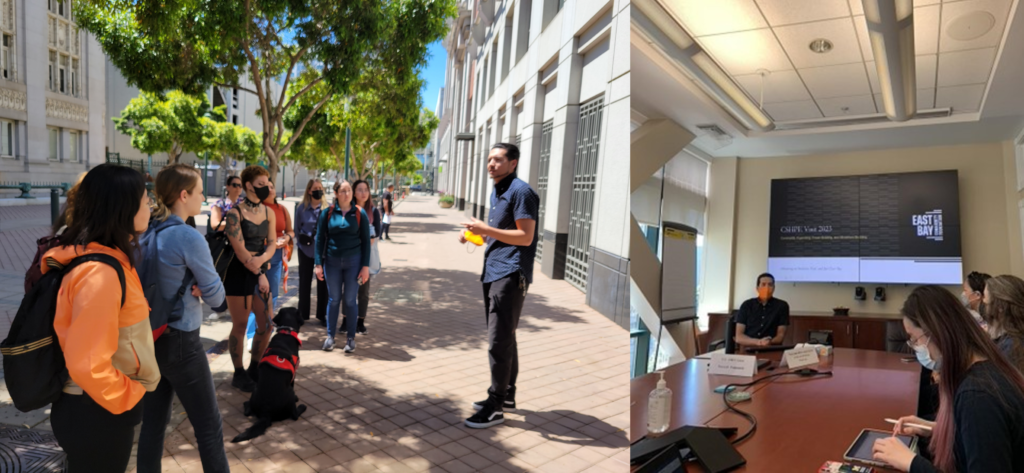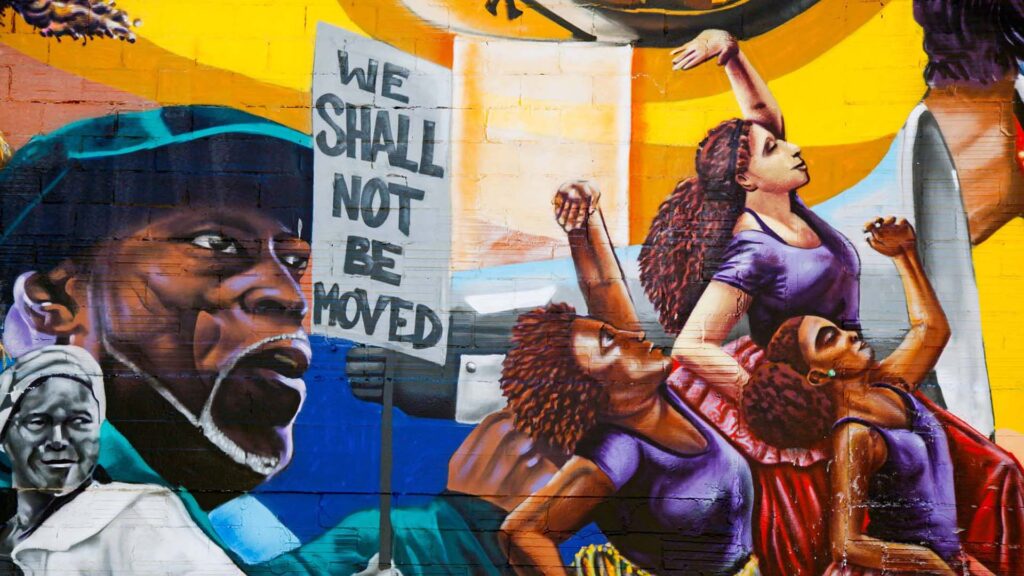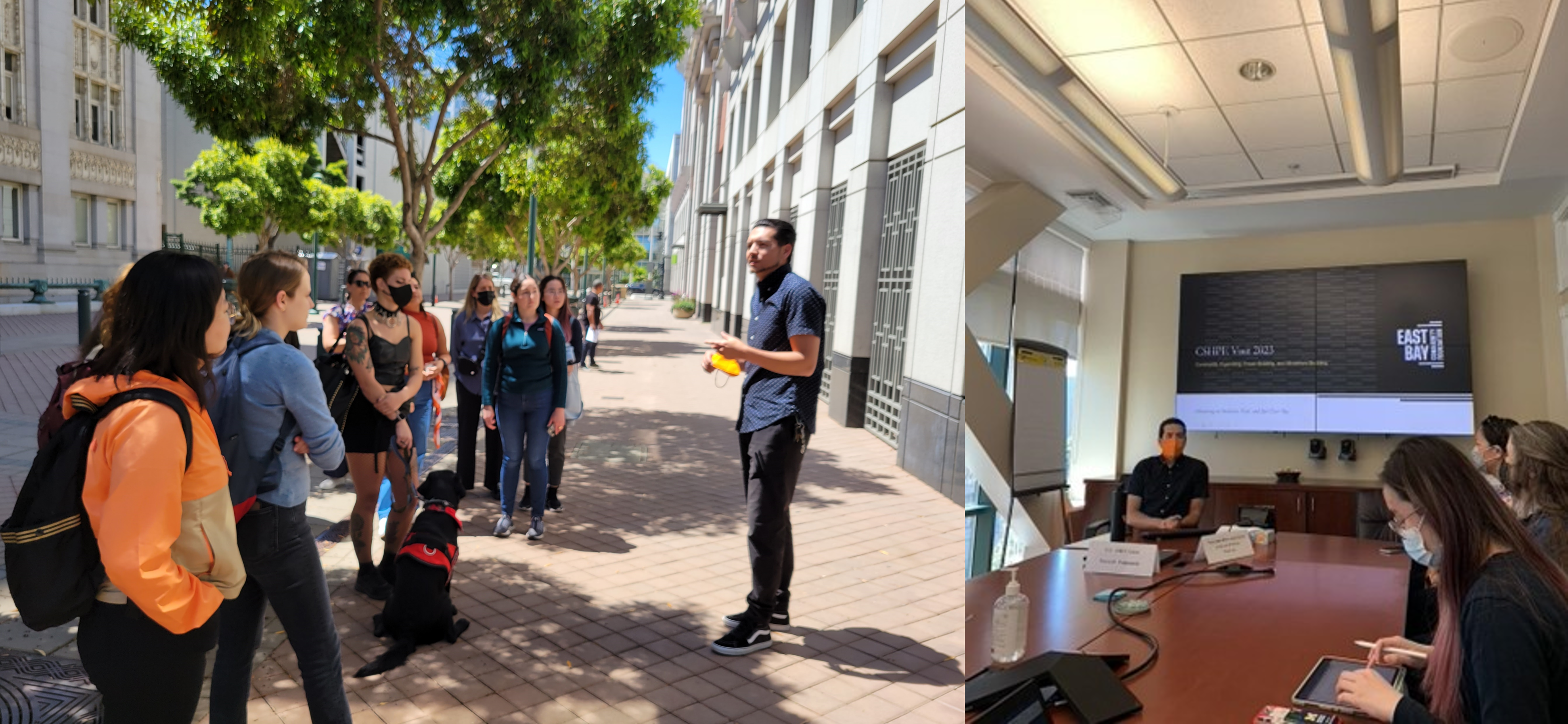When we arrive at the East Bay Community Foundation (EBCF) in downtown Oakland we are greeted by CSHPE alumnus and Oakland native Joshua Lee. We start our discussion with a candid conversation about the Western origins of philanthropy, its roots and connection to capitalism, as well as EBCF’s seemingly unique model of philanthropy that seeks to challenge the traditional power dynamics inherent in grantee/grantor relationships.
Throughout our conversation, it is clear that at the center of EBCF’s work is the belief that communities most impacted by systems of oppression are best positionedto make decisions about their own needs, and should be the drivers of social change work. This view is refreshing, as it gives power back to communities, and is a shift from the narrative in a lot of philanthropic work, that these communities are passive actors in systems of oppression in need of saving. This belief plays out in EBCF’s support of grassroots activism in the Oakland community. They invest in a variety of issue areas, from housing insecurity to education to climate justice–while centering the needs and voices of their priority communities–Black, Latinx, AAPI, SSWANA, immigrants, and those otherwise impacted by systems of oppression. Our conversation with Joshua focuses primarily on EBCF’s focus area of Community Organizing, Power Building, and Movement Building. Investments in this area are made only to base-building organizations that are led by community members impacted by racial and social injustice.

Joshua mentions that there is no grant application process, and I immediately ask how grantees are identified and awarded funds. He says that to reduce the amount of labor organizations seeking funding are required to do, the onus is placed on EBCF to do their homework and seek out people and organizations who are spearheading change in their communities. This is a key component of trust-based philanthropy–and saves already resource-constrained organizations the time and energy needed to apply for grants. I thought about how traditional philanthropy has the potential to reproduce inequality, as organizations with the most resources and capacity to apply for grants are more likely to get funded. By getting to know the issues and seeking out community members doing the work, EBCF can create more equity in the grant-making process.

EBCF was a unique stop on our trip and was one of two philanthropic organizations we visited, while the majority of our trip focused on higher education institutions and policy organizations. Our visit to EBCF highlighted how policy is created at all levels, from grassroots organizations to the legislature. Philanthropy, similar to good public policy, has a social change agenda. Philanthropic organizations, especially those with significant financial resources and social capital, have a huge role to play in shaping policy. The work philanthropic organizations deem valuable and the initiatives they choose to fund, or not fund, often get pushed forward and codified as policy. Through investing in racially and socially just work, the EBCF is helping to set a more socially just policy agenda in California.
–Abbie Barondess, master’s student

